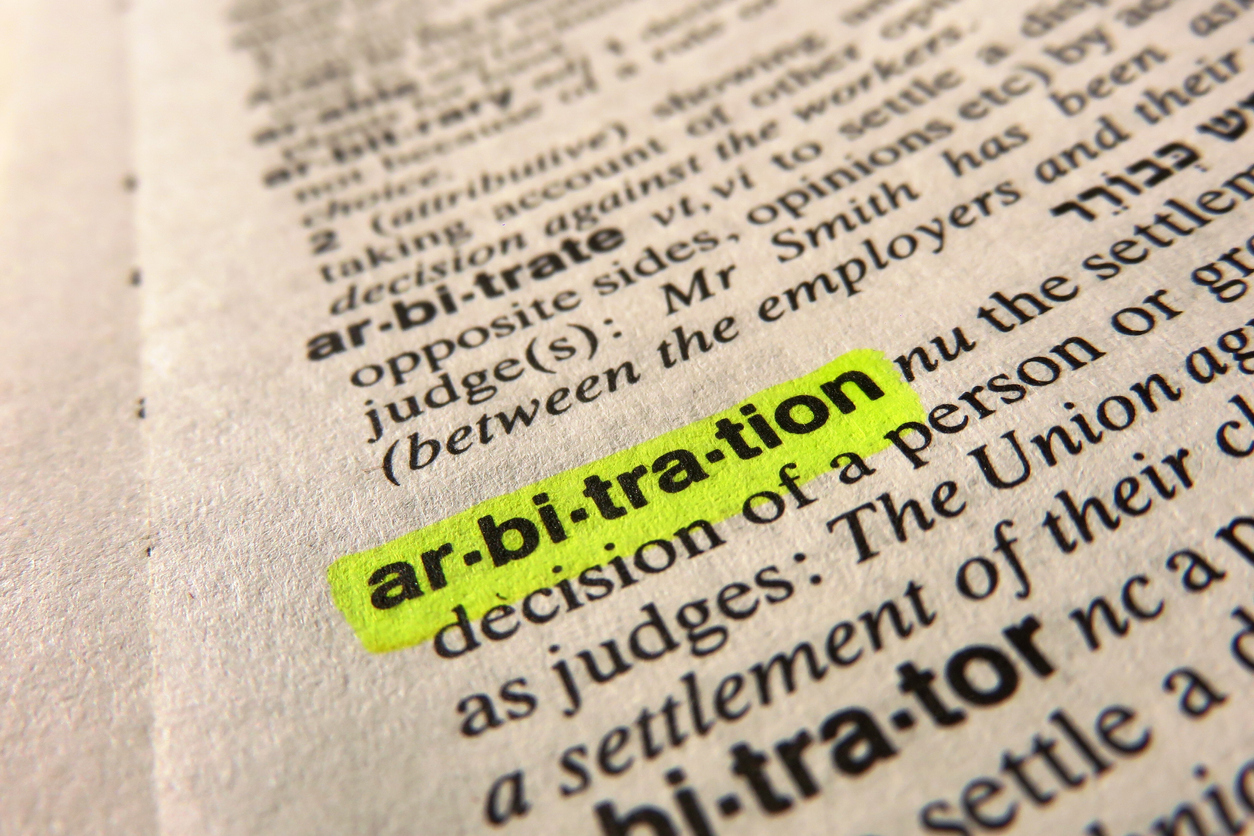In Florida, certain first-party property cases are being ordered to non-binding arbitration. Under the statute and the State’s procedural rules, a Florida court may refer a civil case to arbitration before going to trial.1 While every case is different, resolving a case before trial can sometimes be favorable (e.g., through mediation). Participating in a non-binding arbitration is one way for early resolution. However, despite its name, a non-binding arbitration is not inherently devoid of risk and can have repercussions.
Florida Rule of Civil Procedure 1.820 requires that the arbitration be conducted in an informal setting.2 In a non-binding arbitration, the parties appear before a court-appointed arbitrator at a date and time that the judge selects and present each of their cases in front of the arbitrator.3 An insured must be careful not to “default” or miss the hearing, as the arbitrator can proceed with the hearing and render a decision based on the facts and arguments presented that day.4 Florida law also limits the evidence that the parties can present at the non-binding arbitration.5 The parties can expect evidence, such as witness testimony, to be kept at a minimum; most matters are discussed through “statements and arguments” raised by each of the parties’ counsel.6
After each of the parties present their case, the arbitrator considers the legal and factual matters and issues a decision in writing within ten days.7 The decision will be binding on the parties if the parties do not file a “Motion for Trial De Novo” within 20 days of the decision.8 Should one of the parties file the Motion, the arbitrator’s decision operates like a proposal for settlement against that party should the case go to trial.9 This avenue carries risks; if an insured files the Motion and obtains at least 25 percent less at trial than what he or she obtained at the arbitration, the insured can be subject to pay for the carrier’s attorney’s fees and costs.10 If the carrier files the Motion, it likewise carries the risk of attorney’s fees and costs if the judgment at trial is at least 25 percent more than the arbitration award.11 In the case that the arbitrator’s decision is not challenged by either party, the decision will be referred to the presiding judge who will enter the decision as an order or judgment.12
It may not always be readily apparent what the impact of a non-binding arbitration can be on a case. Sometimes the outcome of a non-binding arbitration can provide an insured with the benefits due and owing under the policy. Other times, the result not does fully remedy the insured. An insured should thus consult with legal counsel to assess the benefits and/or risks associated with participating in non-binding arbitration.
___________________________________
1 The governing laws in Florida regarding non-binding arbitrations are set forth in Florida Statute section 44.103 and Rules 1.800, 1.810, and 1.820 of the Florida Rules of Civil Procedure.
2 Fla. R. Civ. P. 1.820(b).
3 Fla. R. Civ. P. 1.800; Fla. R. Civ. P. 1.820(b).
4 Fla. R. Civ. P. 1.820(e).
5 Fla. Stat. § 44.103(4).
6 Fla. Stat. § 44.103(4); Fla. R. Civ. P. 1.820(c).
7 Fla. R. Civ. P. 1.820(g)(3).
8 Fla. Stat. § 44.103(5); Fla. R. Civ. P. 1.820(h).
9 Fla. Stat. § 44.103(6)(a)(b).
10 Fla. Stat. § 44.103(6)(a).
11 Fla. Stat. § 44.103(6)(b).
12 Fla. R. Civ. P. 1.820(h).




